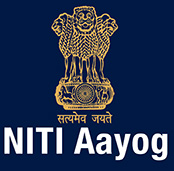The Role of Digital Infrastructure in Socio-economic Development
Successful countries have developed their ability to innovate and learn by doing, by investing public funding to help finance research and development in critical areas. Everyone is involved – big and small, public, and private, rich, and poor. India has set itself an ambitious target of doubling its economy in five years to $5 trillion. It has made many efforts to become more digitalised and Digital India Mission is envisioned to be created on digital security and trust. Building digital trust is a major effort for the whole society, trade, and also for people using digital services.
Digital infrastructure has emerged as an equally or arguably a more significant infrastructure necessity, as compared to the traditional infrastructure necessities such as power, water, and roads. The COVID-19 pandemic has not only shuffled the global order, but it has also provided an impetus to the ever-expanding digital infrastructure.
Economies across the globe are charting ways to make their digital infrastructure – which comprises the physical resources necessary for the use of data, computerised devices, methods, systems, and processes – more resilient, agile, and futuristic. The digital infrastructure has become indispensable to the functioning of a society and the quality of life of its citizens. All over the globe, countries have leveraged their digital infrastructure to proactively respond to the ongoing pandemic. Going forward, the resilience of a nation’s digital infrastructure could be pivotal in successfully addressing adversities such as the COVID-19 pandemic. India, being one of the most populous countries in the world, is uniquely positioned in the global landscape and has the potential to become a leading force in the new world order.
With nearly half a billion internet users in India, a host of indigenous digital services, platforms, applications, content, and solutions, are expected to transform the digital ecosystem. India could potentially see a fivefold increase in economic value from digital transformation by 2025, representing an attractive opportunity for global and local businesses, startups, and innovators to invest in emerging technologies (like AI, Blockchain, or drones) in ways that are customised to India’s needs.
The rapid adoption of frontier technologies such as Artificial Intelligence (AI), Blockchain, Internet of Things (IoT) and the advent of the COVID-19 pandemic, has placed the entire digital infrastructure under immense pressure. With the Government of India progressively working towards goals such as Smart Cities and Smart Health, it is crucial for the nation to augment its digital infrastructure, to effectively utilise the frontier technologies in economic development.
With increasing smartphone penetration, surging online activity and a gigantic amount of data being generated, Data Centres could be of high importance for the world. Thus, it is the need of the hour to promote and create a framework for the development of robust digital infrastructure which could facilitate adoption of emerging technology areas such as 5G, IoT, artificial intelligence, machine learning, drones, robotics, additive manufacturing, photonics, nano-based devices, etc., and their applications in areas such as defence, agriculture, health, cyber security, smart cities, and automation, with special focus on solving real-life problems.
The authors are Naman Agrawal, Senior Associate, Seepana Mohit Rao, Young Professional and Himanshu Agrawal, Young Professional at NITI Aayog.
Views expressed are personal.
 National Portal Of India
National Portal Of India 








